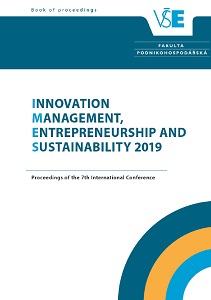Prospects of Development of Innovation
Clusters. A Case of Russia
Prospects of Development of Innovation
Clusters. A Case of Russia
Author(s): Ekaterina Zaitseva, Galina Alekseevna Bannykh, Svetlana Kostina
Subject(s): Social Sciences, Economy
Published by: Vysoká škola ekonomická v Praze
Keywords: Innovation cluster; innovation; university; triple helix; territory development; four-link helix; new industrialization
Summary/Abstract: Purpose: The main research objective is the analysis of the features and prospects of thedevelopment of innovation clusters in Russia with the participation of universities.
Design/methodology/approach: Case study is the main method to allow the authors to analysedevelopment of innovation clusters in Russia from the role of universities in it point of view(concept of triple helix). Analysis of regulatory documents allowed to determine the legal modelof interaction between participants of innovative clusters, analysis of statistical data – to revealthe effectiveness of their functioning.
Findings: The creation of innovation clusters is not a universal mechanism for raising the levelof a country's global competitiveness and should occur only with strict control by the state andthe mandatory participation of universities, only in those industries and regions where thecreation of a cluster may be appropriate. However, only tough measures of state support for thedevelopment of clusters are not enough; a transition to a catalytic model of cluster policy isnecessary.
Research/practical implications: Most of the innovation clusters in Russia are formed „fromabove“, they lack the “need from below” and real regionalization and municipalization. Fortriple helix model it is necessary to solve problems related to increasing the possibilities of civicinteraction, enhancing potential through new formats. Communication of the university withthe business should be real and expressed in specific orders, common projects and even goals.
Originality/value: Non-participation of the population, spontaneous formation of humanpotential and the use of universities as a continuation of the vertical of power are features of thesituation in the Russian Federation. Understanding and assessing the role of universities inmodern cluster and innovation policy of Russia is one of the ways to solve the existing problemsof its innovative development.
- Page Range: 1040-1051
- Page Count: 12
- Publication Year: 2019
- Language: English
- Content File-PDF

